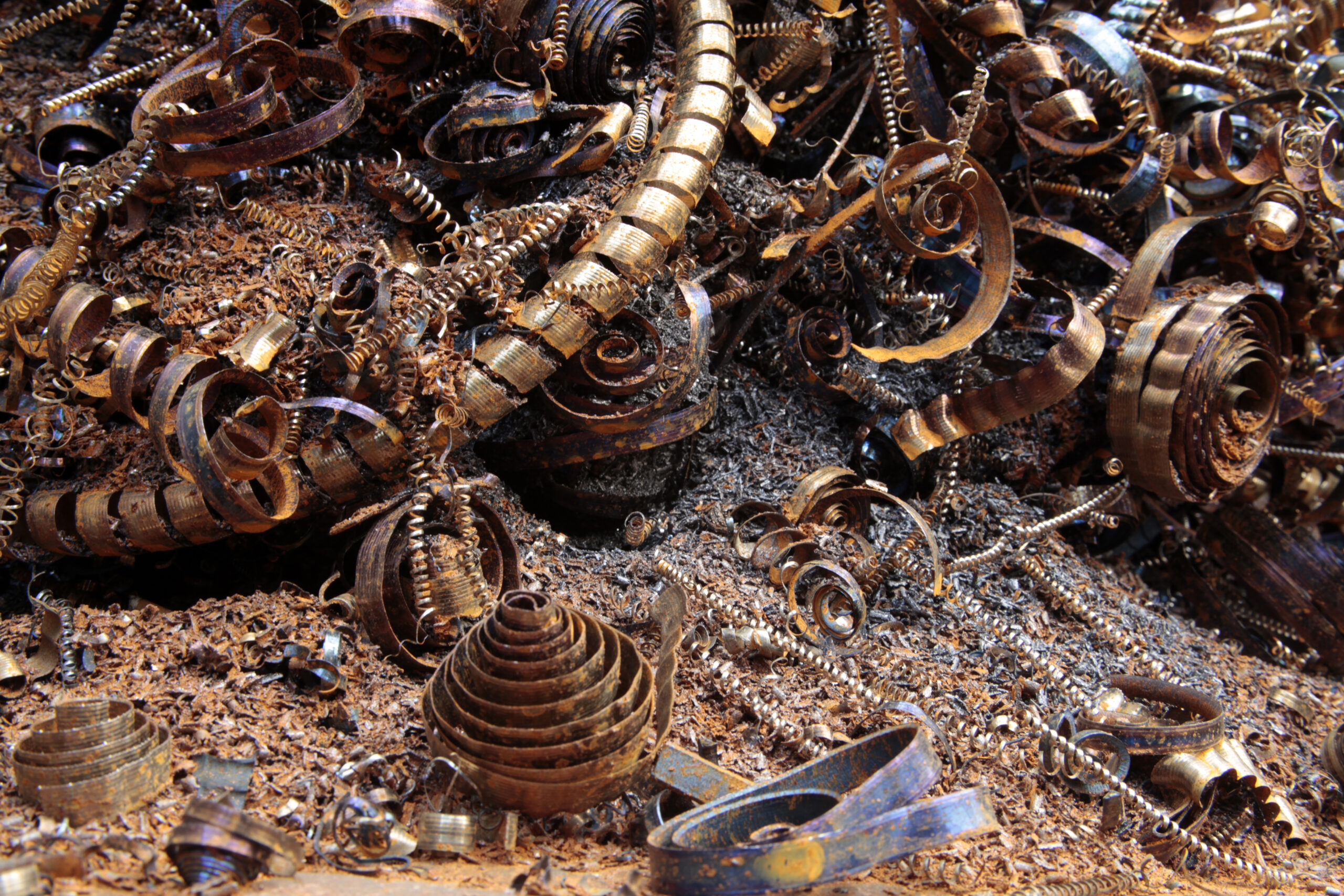Scrap metal waste management comes in various forms, some of which relate to general industrial waste management or industrial services.
This includes scrap metal recycling, processing scrap metal, using scrap metal merchants, or other appropriate services.
But what does this have to do with waste management?
Quite simply, waste management refers to the processes of dealing with all of the rubbish that people no longer see value in.
Scrap metal is an example of this type of waste, and how it is possibly transformed reflects waste managements commitment to finding sustainable ways to use discarded items.
Why is Scrap Metal Waste Management Important?
Industries generate vast amounts of scrap metal waste, ranging from steel and aluminium to copper and brass.
Proper scrap metal waste management is crucial for sustainability, cost efficiency, and environmental responsibility.
By implementing smart recycling and disposal techniques, businesses can reduce waste, minimise pollution, and even turn industrial scrap into a profitable resource.
Understanding Scrap Metal Waste
Types of Scrap Metal
Scrap metal waste generally falls into two categories:
- Ferrous metals: Contain iron and are magnetic (e.g., steel, cast iron, wrought iron)
- Non-ferrous metals: Do not contain iron and are non-magnetic (e.g., aluminium, copper, brass, lead, zinc)
Identifying and separating these metals is essential for effective recycling and waste management.
Common Sources of Industrial Scrap Metal
Industries that generate significant amounts of scrap metal, as well as common examples, include
- Manufacturing and fabrication
- Automotive and aerospace
- Roofing iron
- Construction and demolition
- Electrical and electronics industries
- Industrial machinery
- Shipbuilding and railway sectors
- Electric motors
Best Practices for Scrap Metal Waste Management
When it comes to scrap metal waste management, many of the processes follow the general best practices of waste management. This means following processes like the waste management hierarchy, only now it is adapted to work alongside scrap metal services and other personalised service providers.
This means that it can be as simple as using scrap metal bins for stainless steel and other common scrap steel and scrap metal items.
At the end of the day, the best advice that we can offer is to contact a waste management team like Cleanway.
Implement a Metal Segregation System
Maximising the value of scrap materials makes recycling easier and more profitable. Metal containers need to be marked for ferrous and non-ferrous metals, and storage spaces clearly labelled.
Work With Credible Scrap Metal Recyclers
Working with certified metal recyclers ensures that scrap materials are not only disposed of properly, but can fetch the highest value. A number of recyclers have disposal units for bulk waste.
Purchase Industrial Shredders and Balers
Transportation and storage of metal waste becomes easier with shredding and baling. Compacted waste also improves recycling efficiency.
Optimise Manufacturing Processes to Lower Waste
Using offcut minimising techniques, precision cutting, contouring parts, and optimising material usage are all effective ways that help reduce scrap during manufacturing.
Recycle Internally Where Possible
Some industries can utilise their metal waste. For example, foundries can melt and reuse scrap metal for new projects instead of virgin materials.
Keep Records and Track Waste Output
Tracking scrap metal waste helps businesses identify and implement better strategies for waste reduction. Many companies use waste management systems to monitor recycling efficiency.
The Environmental Advantages of Recycling Scrap Metal
Scrap metal recycling has many benefits that relate to the general benefits of both recycling and eco-friendly waste systems.
Commonly, this means extracting value from the scrap metals, often through industrial practices that lessen the burden placed when mining natural resources are required.
Landfill Reduction
Recycling scrap metal averts the buildup of discarded materials throughout the environment, which is a key benefit.
Decrease Energy Usage
Producing new metal from raw materials is a higher energy consuming activity compared to recycling. For example, recycling aluminium saves approximately 95% of the energy required to produce the initial product.
Reduce Carbon Emissions
Recycling scrap metal can greatly reduce the amount of carbon emissions industries use compared to the initial extraction and processing of the base metals.
Reserve Nature’s Resources
Sourcing unused materials like iron ore, bauxite, and copper is then preserved through recycling as the newer materials needed by industry become rarer.
The Economic Benefits of Scrap Metal Recycling
Like the environmental benefits, the economic benefits vary. But, at the end of the day, saving money through scrap metal waste management revolves around extracting value from waste.
Establish New Economic Projects
The selling of scrap metal as well as the supporting jobs in collection, processing, and manufacturing generates income for businesses. This boosts the revenue of the entire community, therefore allowing these ventures to flourish.
Encourage Growth For New Industries
The lowered expense of using recycled metals versus virgin materials increases the likelihood of spending for new businesses. This encouraging spending can mark the beginning of a new era for manufacturing and innovation.
Boost Competition
The higher demand for raw materials that can be recycled causes growth of the waste management industry. This will push forth advances that focus on aiding clean environment controls.
Strengthens Business Environmental Responsibility
Businesses that focus on prioritising recycling can use it as advertising which can help boost their reputation.
Advances in Scrap Metal Waste Management
The potential future advances for scrap metal management vary. Scrap metal needs to be safely and securely disposed of, and some modern technologies, as well as newer ways of looking at waste, ensures this.
Automation and AI in Sorting Machines
Thanks to automation and artificial intelligence, reclaimable metals can be recovered much more efficiently.
Aluminium From Bauxite
Research scientists are focusing on developing hydrogen steelmaking and aluminium smelting to increase the efficiency of recycling available.
Conclusion
Scrap metal waste is advantageous for a business, the environment, and the economy if it is properly managed.
The process of segregation, recycling, and good resource management creates balance within industries and helps move towards a positive outcome.
This approach will streamline processes but also enhance profits while improving the company’s emissions footprint.

